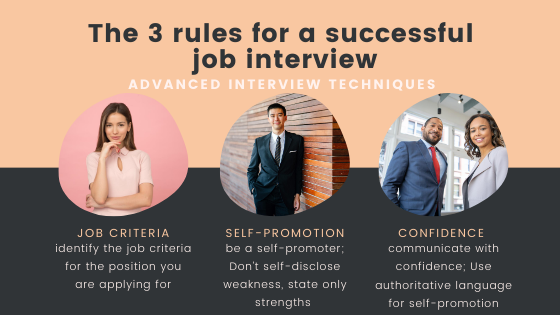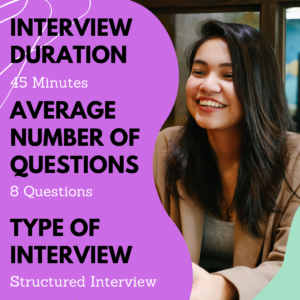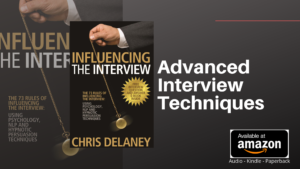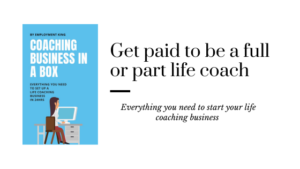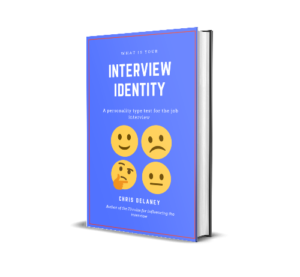First, the 3 rules for a successful job interview are:
- Rule 1 – identify the job criteria
- Rule 2 – be a self-promoter
- Rule 3 – communicate with confidence
More often than not, job offers are given to candidates that utilise the three rules of a successful job interview throughout the recruitment process.
The three rules are universal and work in a variety of different recruitment processes and interview models, from an informal job interview to a structured interview, to an all-day recruitment event.
The power of the three rules is down to how, when combined, they help to sculpture a positive interview identity.
An ‘interview identity’ is one of sixteen interview personality types that are prevalent in the job interview. The identity is how an employer perceives the applicant.
How an employer views an applicant, desirable or undesirable, skilled or unskilled, liked or disliked, affects the subconscious scoring allocation of each interview question.
Therefore, the three rules of a successful interview help to reinforce a positive interview identity:
- Egocentric Interview Identity
- Charismatic Interview Identity
- Optimistic Interview Identity
- Self-Assured Interview Identity
These four interview identities often receive high-scoring points, compared to other weaker identities, including:
It isn’t only the duration in an industry (job experience) or a degree level qualification (academic ability) that results in high-scoring interview answers, but the applicant’s presence and communication style that creates the employer’s positive perception of a strong candidate.
As an example, some highly experienced interviewees fail, time and time again, to land high salaried job roles because their own self-worth results in a poor communication style.
This article will teach you have to be viewed as highly skilled and confident by any employer.
How to identify the job criteria?
Rule one, the identification of the job criteria, is key to receiving a job offer.
Why? Without possessing a deep understanding of the job criteria – the skill, qualities and experiences an employer requires for the advertised job position, an applicant won’t have the insight to choose job-relevant interview answers and examples.
This lack of insight can lead to candidates going off-topic, giving descriptive answers that have nothing to do with their future job role, and the use of jargon that isn’t understood by an employer (as it has nothing whatsoever to do with their job sector).
Identifying the job criteria allows a skilled career professional to reference 3-5 skills, qualities and experiences, required by the employer, in each job interview answer. Furthermore, the explanation of sector-related models and theories, plus industry jargon, reinforce the positive interview identity the employer is forming.
In short, each answer scores high and employers have a positive feeling that the applicant would work well within their organisation.
Quick ways to identify the job criteria.
Three ways to easily identify the job criteria.
Each essential criterion, in the main, will each be part of a job interview question.
For many job interviews, the employer will follow a structured job interview process, where each answer will be allocated a score. The answers stating the highest number of criteria, generally speaking, will gain the highest score.
This is because the job interview is designed to predict job performance.
The more criterion the applicant confidently shows they possess, the more likely it is that the applicant will be a highly-skilled worker.
Without question, all job hunters should review the job specification for the position they are being interviewed for.
The employer’s job spec list of the required job criteria, specifying which criteria are essential or desirable.
Additionally, a clever applicant can analyse the job spec to search for repeated mentions of certain criteria. If a criteria has been reference several times throughout the job spec (and in the job advert) then this criteria is, more than likely, going to be one of the key job interview questions.
If the job position’s job spec lacks detail, a second way to predict the criteria, and therefore the job interview questions, is to read a ‘job profile’.
A job profile is a tool career advisors use to help understand various job roles. The profile consists of the job duties, required skills, entry routs and salary bands.
For most roles, the skills are required for all employers: communication skills for a sales executive or a creative mind for a problem-solving position. Therefore, the job profiles list of duties and required skills can be used to plan interview answers to predicted questions.
A third way to use predict job interview questions is to use your online network.
Linkedin, as an example, can be used to contact people who work or have worked in the organsiation for the advertised position. Many people who use social media are more than happy to help others, even going as far as providing a list of job interview questions and ideal answers.
WARNING – you need to do your research before reaching out to any old employee. You never know if one of the people you are reaching out to is going to be part of the interview panel.
We recommend having a foot-in-the-door approach:
Make contact with a person who is working for the organisation, stating that you saw they are working for X company and that you are also interested in applying for a job there. Ask for their opinion about the company. Once a response has been received, you can then explain you have an interview and ask for ‘any tips’. This can even lead to asking for potential questions, depending on the replies you are receiving.
Another online tool is a career forum website, such as glassdoors, that encourages interviewees and employees to share their interview questions and opinions about employers.
How to be a self-promoter
The law of a job interview is: an employer can only score an applicant on what they have discussed during the job interview.
It is this rule that is the barrier to internal candidates being interviewed by their line manager.
Many internal candidates will fail to mention business-as-usual tasks because they know that their line manager knows that they are competent with these tasks.
However, if the business-as-usual tasks form part of the scoring criteria on the interview scorecard and an internal job applicant does not reference these, the interview panel will be forced to score them low due to the process of a structured job interview.
What is required is self-promotion.
Consistently good interviewee’s are skilled self-promoters. Each answer given is clear, structured and states what the applicant, themselves, did to achieve a positive outcome.
DO NOT:
- Think it is arrogant to talk about your own successes
- Believe you have ‘imposture syndrome’ – you were offered a job interview based on your past experience and academic ability
- Self-disclose weakness
To be a self-promoter:
- Utilise none-verbals; strong eye contact, smile, gesture and positive and powerful body language
- Vary language and use positive emotional words and powerful language
- Explain in detail what YOU did to overcome problems
- Detail how a skill (from an example) can be utilised in the interviewer’s company
- Reframe any mistakes or weaknesses as learning points

How to communicate with confidence
Communication is king in the job interview
As mentioned above, failing to mention key criteria can only result in low scoring interview answers.
In addition to discussing essential criteria, the way skills, qualities and experiences are communicated influence how they are received.
An example of this is stating acronyms that aren’t reconisgnise by an employer or mumbling. The use of filler words, a monotone voice, and short snappy answers will also create a negative interview identity.
Employers admire confidence.
A confident team with the required experience are likely to be a high-performing team. In addition, trust is closely linked to confidence.
Employers, therefore, subconsciously score applicants who communicate confidently slightly higher than a weak communicator.
To communicate confidently:
- Complete pre-interview voice warm-ups
- Make small talk at the interview start to build rapport
- Vary tonality, projection, and emotions
- Focus on pace; speed up to create excitement and slow down when stating positive outcomes
- When feeling nervous (or a dry-mouth) stop and drink water
- Be humorous or smile is that comes naturally
- Explain answers in detail as a high number of words per answer, research shows, gain higher scores
- Be expressive – use gestures and positive body language
- Debate ideas, and even challenge an employer opinion (in a professional and friendly way)
- Ask the interview panel questions throughout the job interview, to create a conversation not a Q&A process

A successful job interview
Much research shows how the 3 rules; identifying the job criteria, being a self-promoter and communicating with confidence, will be vastly improve a candidate’s chances of winning the job offer.
Career professionals who struggle with gaining career advancement due to a high number of failed job interviews can analyse their interview performance to identify which of the 3 rules they are failing to implement.
With this reflection, and using the advice in this article, once weak interviewees can become strong applicants altering their job interview identity from a weak identity to one of the 4 strongest interview identities.

